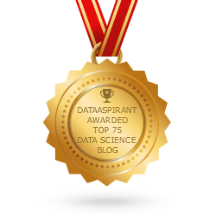Privacy vs. Control: Data Science in the Age of Surveillance

Welcome to our insightful exploration of "Understanding Data Science in Surveillance." In this comprehensive blog, we delve into the intricate and often controversial world of data science and its pivotal role in modern surveillance practices.
As you navigate through our content, you will gain a deeper understanding of how data science, through statistical analysis, machine learning, and big data technologies, is revolutionizing the way we monitor and analyze large datasets for security purposes.
Our discussion encompasses a range of critical topics, starting with the applications of data science in surveillance, including social media monitoring, facial recognition in public spaces, and predictive policing.
We address the ethical dilemmas these technologies pose, highlighting the fine line between societal safety and privacy infringement.
Privacy vs. Control: Data Science in the Age of Surveillance
The blog further explores the "Privacy Paradox," a phenomenon where individuals share personal information online, sometimes compromising their privacy for digital convenience.
You'll learn about data science's dual role in both exploiting and protecting our personal information through sophisticated algorithms and advanced privacy-preserving techniques.
We then shift our focus to the role of Virtual Private Networks (VPNs) in enhancing digital anonymity and security, discussing their significance in circumventing geo-restrictions and countering censorship, especially in authoritarian regimes.
The blog also sheds light on the limitations and considerations when using VPNs, providing a nuanced view of their effectiveness.
The intricate "Cat and Mouse" game between data science and VPNs is another highlight, offering insights into how these two forces are continually adapting in the realm of digital privacy and surveillance.
By the end of this blog, you'll have a comprehensive understanding of the complex relationship between data science, surveillance, and privacy in our digital age. Whether you're a privacy advocate, tech enthusiast, or simply curious about the digital world's evolving landscape, this blog will equip you with valuable insights and knowledge.
Let's embark on this journey to unravel the multifaceted world of data science in surveillance.
Understanding Data Science in Surveillance
Data science, a multifaceted field combining statistical analysis, machine learning, and big data technologies, plays a pivotal role in modern surveillance. Processing and analyzing vast datasets, data science uncovers intricate patterns, insights, and previously hidden trends.
This analytical power is a cornerstone in various surveillance methodologies, such as monitoring social media interactions for potential threats, implementing facial recognition technologies in crowded public spaces for security purposes, and employing predictive policing techniques to prevent crimes before they occur.
These applications, while technologically advanced, still need their ethical quandaries. The same tools that bolster public safety and security can also lead to significant privacy infringements, raising alarms about the potential misuse of personal data. The dual-use nature of these technologies places them in a delicate balance between societal benefit and individual rights.
As data science evolves, addressing these ethical considerations becomes increasingly crucial. It's essential to ensure that advancements in surveillance technology go hand in hand with a robust commitment to protecting personal privacy.
The Privacy Paradox
Despite increasing awareness of digital privacy issues, a significant privacy paradox persists, where individuals voluntarily share vast amounts of personal information online. This paradox is rooted in the modern world's intricate trade-off between digital convenience and personal privacy. Users often divulge personal details for ease, personalized services, or social connectivity, needing to grasp the potential consequences fully.
Simultaneously, data science plays a dual role in this scenario. On the one hand, it exploits this paradox through sophisticated algorithms that predict user behavior, thereby enabling hyper-targeted advertising and personalized content that can intrude on privacy. These algorithms sift through personal preferences, search histories, and online activities, creating detailed user profiles.
On the other hand, data science also acts as a guardian of privacy. Advanced techniques actively anonymize personal data, ensuring user identities remain concealed and protected. Encryption and differential privacy are examples of how data science methodologies are applied to safeguard user information from unwarranted access and misuse.
This dual capability of data science highlights the complexity of the digital age, where the tools that can intrude on our privacy are also those that can protect it.
The Role of VPNs in Protecting Privacy

Enhancing Digital Anonymity and Security
Virtual Private Networks (VPNs) have become indispensable in safeguarding personal privacy in the digital era characterized by pervasive surveillance and data tracking. VPNs establish a secure, encrypted tunnel for internet traffic, obscuring users' IP addresses, and encrypting data to protect sensitive information from external entities, including governments, hackers, or corporations.
This layer of encryption is crucial for securing personal data and ensuring privacy in an increasingly interconnected world. By redirecting internet traffic through servers across the globe, VPNs significantly bolster user anonymity, making it more difficult for third parties to trace or monitor online behaviors.
Bypassing Geo-Restrictions and Censorship
VPNs are pivotal for enhancing privacy and security and play a vital role in circumventing geo-restrictions and countering censorship, particularly in authoritarian countries. They allow users to actively connect to servers in various locations, granting them access to a broader range of content, such as websites and services that may be restricted in their area.
This capability is essential in countries where authorities curtail internet freedoms. For example, VPNs can overcome these barriers in countries with stringent media censorship or information access restrictions, offering access to a more open and free internet.
However, it's notable that major VPN providers have ceased their operations in Russia, reflecting the challenges faced in environments with rigorous internet controls.
Considerations and Limitations
While VPNs offer significant benefits for privacy and freedom, they come with their own set of limitations. The effectiveness of a VPN is largely contingent upon the quality of the service, which includes factors like encryption strength, adherence to a no-logs policy, and the robustness of the server network.
Users must exercise diligence in choosing a reputable VPN provider, as some may log user data or offer insufficient security, undermining the very purpose of using a VPN. Furthermore, in authoritarian regimes where the use of VPNs is heavily regulated or even prohibited, users run the risk of legal repercussions for attempting to bypass government-imposed internet restrictions.
Therefore, although VPNs are potent tools for enhancing online privacy and freedom, users should be aware of their limitations and potential risks, especially in countries with strict internet surveillance and censorship laws.
Data Science and VPNs: The Cat and Mouse Game

The interplay between data science and VPNs (Virtual Private Networks) epitomizes a complex cat-and-mouse game in the realm of digital privacy and surveillance. Data science, with its advancing algorithms and computational power, is continuously employed to detect and undermine the privacy protections offered by VPNs.
Sophisticated techniques such as deep packet inspection and AI-driven traffic analysis have emerged to challenge the essence of what VPNs stand for, actively identifying and blocking VPN-encrypted data. In response, VPN providers are constantly racing to enhance their encryption methods and protocols, devising new strategies to stay one step ahead.
Employing more robust encryption standards, implementing obfuscation techniques to disguise VPN traffic as regular traffic, and constantly updating server networks are strategies VPN providers use to evade detection and blocking by state-of-the-art surveillance systems.
Conversely, the same data science tools are instrumental for VPN providers in enhancing their services. They analyze network performance, optimize server loads, and ensure the highest levels of security and efficiency for users.
This ongoing struggle between data surveillance and privacy preservation underscores a broader conflict in the digital age: the quest for maintaining personal privacy against the ever-growing capabilities of state and corporate surveillance.
As data science techniques become more refined, the challenge for VPNs to provide secure, untraceable internet access becomes increasingly complex, requiring continuous innovation and adaptation to protect user privacy in an ever-evolving digital landscape.
Legal and Ethical Considerations
The intersection of data science, VPNs, and surveillance brings forth a myriad of legal and ethical considerations that are vital to understanding the context of digital privacy:
Legal Frameworks and Regulations: Countries with varying legal stances on using surveillance technologies and VPNs. For example, some nations, like China and Russia, have strict laws that regulate or even prohibit the use of VPNs, citing national security concerns. In contrast, countries within the European Union uphold stringent data protection laws, like the General Data Protection Regulation (GDPR), which prioritizes individual privacy rights.
Ethical Implications of Surveillance: Utilizing data science in surveillance significantly raises ethical questions. Concerns about consent emerge as individuals often need more awareness of the extent of data collection and usage involving their personal information. Transparency issues also arise, with the processes and algorithms driving data collection and analysis frequently remaining undisclosed to the public.
Potential for Abuse and Misuse: Surveillance technologies by governments or corporations hold a high potential for abuse, representing a primary ethical concern. Governments or corporations may use data science tools for mass surveillance without adequate oversight, infringing on individuals' rights to privacy and freedom of expression.
Balancing Security and Privacy: There is an ongoing debate about balancing national security and individual privacy. While surveillance can be crucial in security and crime prevention, it should not override fundamental privacy rights. Legal frameworks must address this balance, ensuring that any intrusion into personal privacy is justified, proportionate, and within the bounds of law.
Impact on Democracy and Civil Liberties: In authoritarian regimes, authorities often use surveillance technology as a tool for political control. They actively suppress dissent and monitor the opposition, leveraging advanced surveillance capabilities. Such practices directly impact democratic processes and civil liberties, raising significant concerns about surveillance's overarching role in these societies.
Data Protection and Cybersecurity Laws: With the increasing prevalence of cyber threats, data protection and cybersecurity laws are becoming more critical. These laws aim to protect personal data from unauthorized access and breaches, but they must also align with privacy rights and freedoms.
International Cooperation and Standards: As data and surveillance technologies cross borders, international cooperation becomes essential. Establishing global standards and agreements on the use of surveillance technology, data protection, and the legality of VPNs is crucial for ensuring a consistent approach to privacy and security worldwide.
Conclusion
Navigating the complex terrain of privacy, control, and data science in today's digital age presents ongoing challenges. While technological advancements bolster security and convenience, they also raise significant privacy concerns.
VPNs symbolize the struggle to maintain personal privacy amid growing surveillance capabilities, but their effectiveness and legality vary, especially under authoritarian regimes.
The future of digital privacy hinges on a balanced approach that respects individual freedoms while acknowledging the need for security, underscoring the importance of staying informed and engaged in the discourse on digital rights and cybersecurity.




